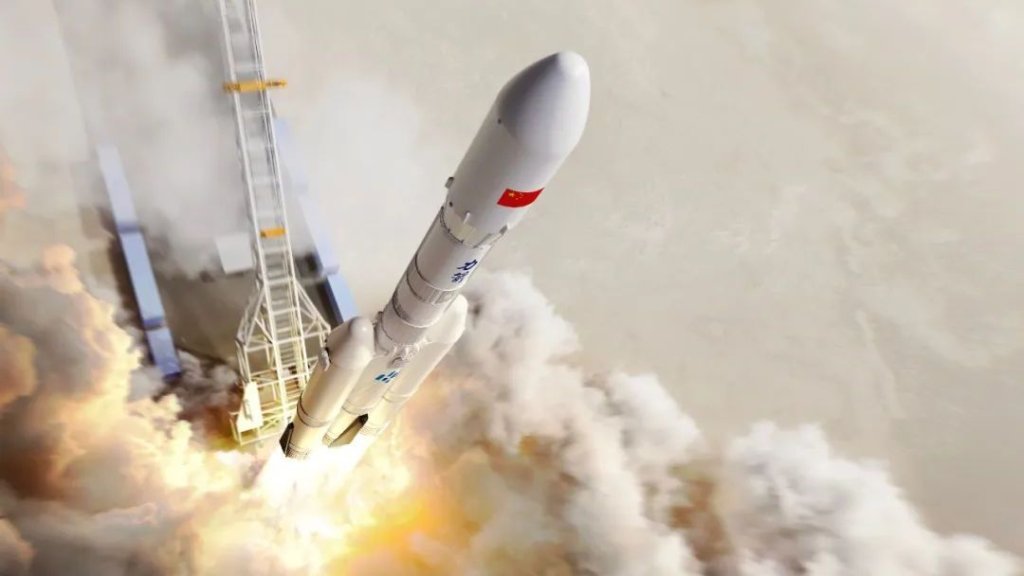The Chinese commercial space firm CAS Space is making serious progress on a new, reusable rocket.
CAS Space is testing components of the Kinetica-2 — also known as Lijian-2 — rocket in preparation for a planned first launch next year. The company aims to begin recovering and reusing the rocket’s first stage and boosters by 2028.
Progress in July and August include vibration and hot-fire tests of the rocket’s auxiliary engine system. CAS Space intends to launch satellites for China’s planned megaconstellations and cargo to the nation’s Tiangong space station.
“It’s highly reliable and developed rapidly, with a payload capacity of around 8 tons. It’s mainly used to launch satellite groups for the construction of the low-orbit internet constellation, and low-cost cargo ships,” Shi Xiaoning, vice president of Beijing CAS Space, told China Central Television (CCTV).
Kinetica-2 will be 174 feet (53 meters) tall with an 11-foot-wide (3.35 m) core stage, supported by two side boosters.
The kerosene and liquid oxygen-propellant rocket will be capable of carrying 17,200 pounds (7,800 kilograms) of payload into a sun-synchronous orbit, or 26,450 pounds (12,000 kg) into low Earth orbit.
Related: Chinese company targets 2025 for 1st launch of powerful new rocket
Some may have seen the news on our WeChat channel already🤔. Recently our space pros have conducted hot firing and thermal protection test for the auxiliary engine system on Kinetica-2. You can find more details and complete recordings on our YouTube channel. pic.twitter.com/shdjNafkwSJuly 26, 2024
“To recycle rockets is the major way to reduce the demand for rocket production capacity, as it’s impossible for us to build production lines without limits. So we recycle the big stuff, which is the best way to improve the launch capacity,” Shi said.
The company has already tested algorithms needed to safely land and reuse rockets using a jet-powered prototype.
CAS Space was established in 2018. It is a spinoff from the state-owned Chinese Academy of Sciences (CAS). The company has already reached orbit with its Kinetica-1 (Lijian-1) solid rocket. It has ambitious plans for suborbital tourism.

